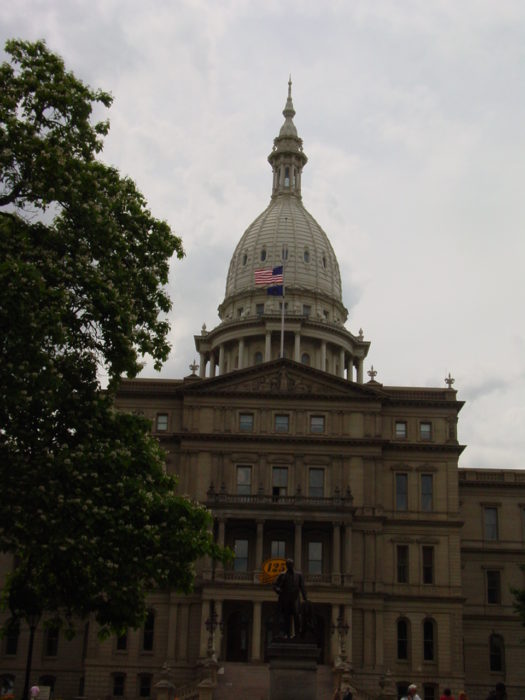
Unable to tap into money from the business community because of “infighting” in the gay community, the head of gay rights petition drive Fair Michigan has pulled the plug.
“Unfortunately we are suspending the 2016 petition drive, but this is not the end of Fair Michigan,” attorney Dana NESSEL, the lead of the Fair Michigan campaign, told the Off the Record panel Friday morning.
She was hoping to expand the state’s constitutional protections against discrimination to include the lesbian, gay, bisexual and transgendered (LGBT) community with a vote of the citizens next November, but it became “a financial issue,” Nessel said.
The business community, when she asked for assistance, “was scared-off because of infighting in the gay community.” The ACLU and Equality Michigan steadfastly opposed the petition drive, claiming if the citizens said no, it would be difficult to get state lawmakers to say yes.
“There is no legislative solution at all,” she concluded, while saying the drive “was not a wasted effort” because the people were “educated” on the issue. Fair Michigan is not going away, she said. She expects a non-profit forming and a potential 2018 campaign being launched.
Members of the LGBT community were concerned the transgender community would be demonized in a “no vote” campaign as creepy individuals using the perceived wrong public bathroom.
“It’s a red herring,” said Nessel, adding that for every city where this argument killed a similar civil rights issue, there are plenty of examples where this transgendered-bashing tactic failed and the civil rights drive succeeded.
Asked if her group would advance this issue city by city with a gay rights ordinance, she rejected that, calling it “window dressing.” The people of Michigan need statewide protection, she said.
One of the most outspoken opponents of the petition drive option was AT&T of Michigan President Jim MURRAY. She reported she never had a conversation with him and she believes he “lost credibility” when he failed to advance this issue during the lame duck session last year after he allegedly suggested he had a chance to pass the expansion law.
For those who believed in the legislative option she asked, “What are you smoking?”
Approached with these comments, Murray responded with, “Our coalition’s efforts in lame duck pushed the expansion of civil rights farther than ever before. Personal attacks won’t change that.
“If anything, for the leaders who joined me in saying the ballot wasn’t the way to go, our credibility is very secure today after watching how this played out. It doesn’t make me happy to say, but it is the truth.”
Nessel reported the polling data suggested 68 percent of the voters supported this effort. But others contend that once the anti-gay factions went to work the number would drop into the 40s. Nessel predicted a win had the drive been successful.
As for the internal conflict, she said she believed in every civil rights movement some “people are not ready to have this happen.”
Equality Michigan Executive Director Stephanie WHITE countered by saying, “I want LGBT rights. Obviously. It’s my job. It’s my passion.”
But after her group and others did a deep dive into the numbers, they didn’t see a path to victory this year. She said more public education, a better infrastructure and a lot of money” is needed before the voting public is comfortable changing the Constitution to include protections for the LGBT community.
“Traditionally, it’s been very hard to get the majority to vote to approve equal rights for the minority,” said White, noting that most significant civil rights advancements take place through legislation or the courts.
“People are good-hearted, but when you see incidents out there and hear about the misinformation that can be spread, it doesn’t take long to find out we’re not there, yet,” she said.
Equality Michigan, the ACLU and other groups are working to get in front of making Michigan residents feel more comfortable about the issue of gender identity, said ACLU Michigan Executive Director Kary MOSS.
Launching a statewide initiative of this magnitude without doing that groundwork well could have “put the transgender community, physically, at risk,” she said.
“The time is now for LGBT equality, but this ballot initiative needed a little more prep work before being launched,” she said. “But we’re optimistic for the future.”